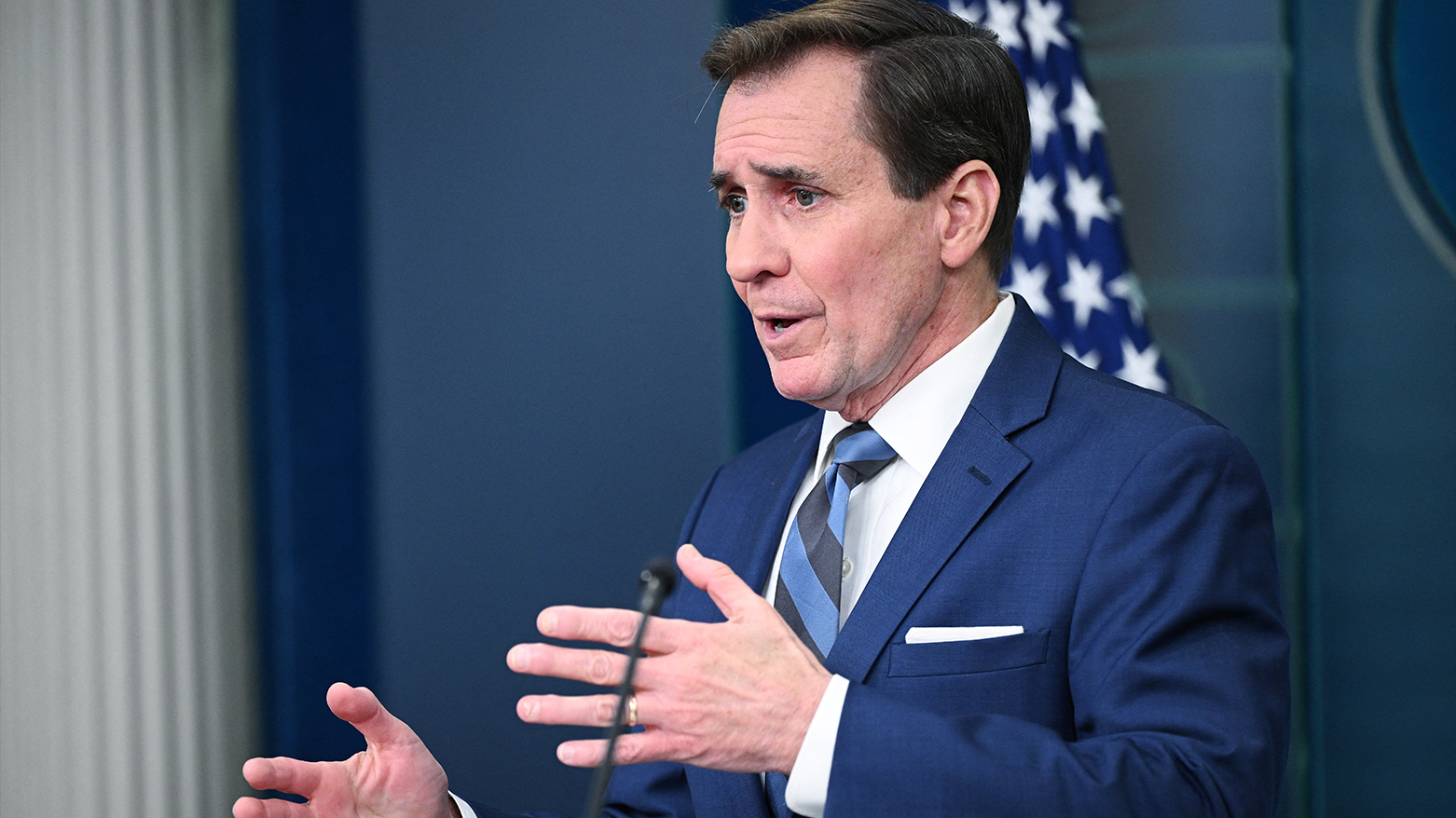White House: Islamic Resistance in Iraq behind Attack, as Calls Grow for Strong Response to Deaths of US Troops

WASHINGTON DC, United States (Kurdistan24) – National Security Council Coordinator for Strategic Communications, John Kirby, was asked on Wednesday whether the U.S. had determined “which militant group or groups” was behind Sunday’s attack on U.S. troops in Jordan that killed three soldiers.
Kirby responded, “We believe that the attack in Jordan was planned, resourced. and facilitated by an umbrella group called the Islamic Resistance in Iraq [IRI], which contains multiple groups, including Kata’ib Hizbollah.”
Already on Sunday, the IRI had claimed credit for the attack, but Kirby’s statement marked the first time a U.S.official said that the IRI was responsible.
Growing Calls for U.S. Action
Since Sunday, calls have grown for the Biden administration to take decisive action in response to the assaults by the Iranian-backed militias. While only Sunday’s attack resulted in the deaths of Americans, there have been over 160 such assaults since Oct. 17, and the U.S. response has been minimal.
Some three weeks ago, in an interview with Kurdistan 24, Amb. John Bolton, National Security Council Advisor under Donald Trump and U.N. ambassador under George W. Bush, warned that the administration’s weakness was inviting more attacks. Eventually, he said, one of those attacks would prove lethal and oblige the administration to respond in a much more serious way.
Read More: Amb. John Bolton: Biden Administration fails to understand Iran’s centrality in regional attacks
The Washington Post is a highly regarded newspaper and known for its even-tempered reporting. It is not often that the Post calls for U.S. attacks on targets abroad. But on Tuesday it did just that.
The paper published an editorial titled, “Attack on U.S. troops needs a rapid response and long-term follow-through.”
“The United States must strike back at the authors” of Sunday’s lethal drone attack, the editors of the Post wrote. “Devastating retaliation is imperative for several reasons,” they said: “to mete out justice for the fallen U.S. troops, to reduce the military capability of Iranian-backed militias that conducted the attack—and to deter those groups from trying again.”
The Post shares the Biden administration’s view that striking Iran directly would be imprudent, but it also noted that the U.S. was failing to stop attacks by another Iranian-backed militia, the Houthis, in the Red Sea.
Indeed, the International Monetary Fund (IMF) reported on Wednesday that the Houthi attacks had caused container shipping through the Red Sea and Suez Canal, the transit fees of which are a vital source of income for Egypt, to drop by 30%.
Read More: Red Sea container shipping down 30 percent over attacks: IMF
The Post suggested that a “better option” than direct attacks on Iran, as some are urging, “would be to hit Iran hard, and directly, but outside its own territory.”
“This could be done,” the Post’s editors suggested, “by striking Iran’s Revolutionary Guard Forces in Syria, Iraq or Yemen.”
Speaking to Kurdistan 24, Brig. Gen. Ernest Audino (US Army, Retired), former Deputy Director of Operations, offered another suggestion. He noted that President Ronald Reagan had destroyed half the Iranian Navy in 1988, when Iran continued to mine the Straits of Hormuz, even after the U.S. had strongly warned Tehran against doing so.
Read More: Brig. Gen. Audino: Biden Needs to Take ‘Decisive Action’ against Iran
Outline of a U.S. Response
On Tuesday morning, as he left the White House to fly to Florida, Biden was asked, “Have you made a decision how you’ll respond to the attacks” on Sunday.
“Yes” was Biden’s terse answer.
Kirby subsequently expanded on that. Later on Tuesday, he told journalists traveling with the president on Air Force One, “It is very possible that what you’ll see is a tiered approach here, not just a single action, but essentially multiple actions.”
On Wednesday, Kirby provided a similar picture, in more detail, in a televised briefing at the White House.
It “won’t just be a one-off,” he said. “The first thing you see will not be the last thing,” adding, “This will be a response over time” and “in a manner of our choosing, on our schedule.”
One would think that options for such retaliation are prepared long in advance, and the reasons for the U.S. delay are not clear. One risk in a delayed response is that the enemy gains time to prepare himself and take countermeasures. However, Kirby dismissed concerns that those who might be targets of U.S. strikes were using the delay to disperse and conceal themselves.
Kirby also dismissed a statement issued by Kata’ib Hizbollah on Tuesday that it was suspending military operations in order to avoid embarrassing the Iraqi government.
“You can’t take what a group like Kata’ib Hizbollah says at face value,” Kirby said. “They’re not the only group that has been attacking us” and “certainly not the only group that is a participant in this Islamic Resistance of Iraq.”
So it does seem that the Biden administration is planning a military response to the attacks by the Iranian-backed militias, but just what it will be and when it will start or how long it will last all remain to be seen.
